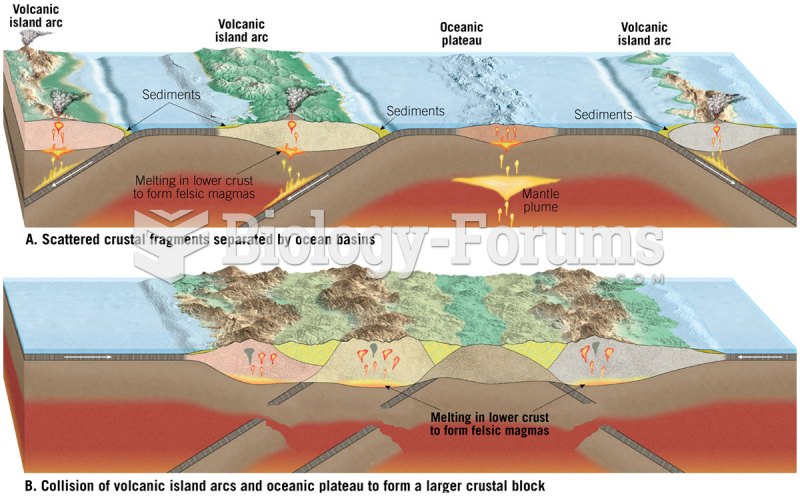|
|
|
Hip fractures are the most serious consequences of osteoporosis. The incidence of hip fractures increases with each decade among patients in their 60s to patients in their 90s for both women and men of all populations. Men and women older than 80 years of age show the highest incidence of hip fractures.
Cytomegalovirus affects nearly the same amount of newborns every year as Down syndrome.
Oxytocin is recommended only for pregnancies that have a medical reason for inducing labor (such as eclampsia) and is not recommended for elective procedures or for making the birthing process more convenient.
The calories found in one piece of cherry cheesecake could light a 60-watt light bulb for 1.5 hours.
Blood is approximately twice as thick as water because of the cells and other components found in it.







